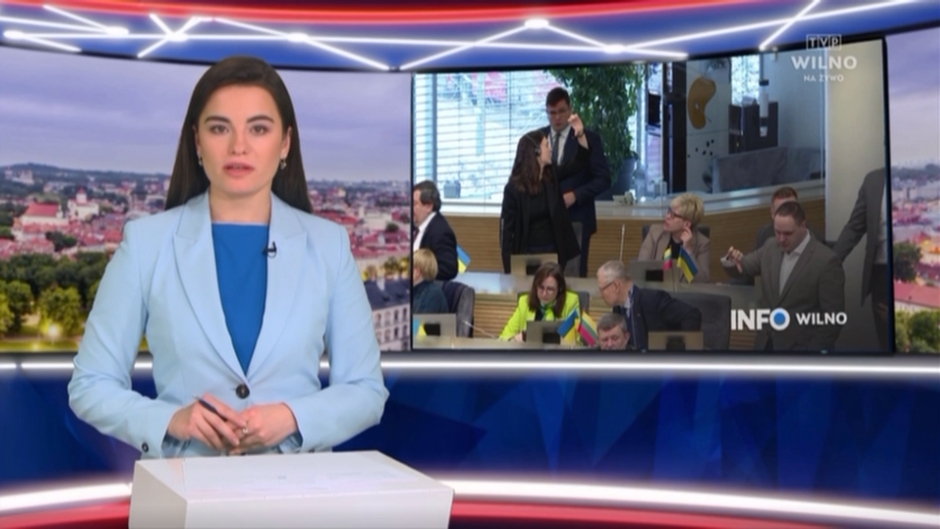- December 19, 2016
- 408
Čeponis: Polish-Lithuanian relations are one of the goals of Russian propaganda

“Stages of the conventional war begin and end, the process of informational war is continued”, says Sergeant Tomas Čeponis from the Department of Strategic Communication of the Lithuanian Army. The expert on propaganda wars met participants of the annual seminar for journalists of regional media, organized by the Ministry of Foreign Affairs of Lithuania.
Informational wars, which are intended to influence the opponent, and thereby – to achieve certain goals, have been known since antiquity, notes Čeponis. Why are they in use?
“It is much cheaper than conventional wars. Huge amounts of money are spent on propaganda machine, but the costs are still lower than these of, for example, submarines, planes and other military technologies. During the informational war most of the society does not know that it is happening. If we use only informational means, the occupied territory of the enemy does not need to be rebuilt, because they are not destroyed by the war”, lists the expert.
The Lithuanian Army started studying the symptoms of informational wars when Lithuania was preparing to join NATO. As part of the preparation process soldiers had to learn mechanisms of psychological influence. During the preparations it turned out that similar psychological and informational preparations are also used in our country. In 2005-2007 there was no “political blessing” in case of talking about such issues. Only the war in Georgia in 2008 provided some more specific examples and events in the Crimea, says Sergeant Čeponis, opened eyes of many people.
“Public speaking about these phenomena, mechanisms, sharing the information is very important. In the near future Lithuania, NATO and the EU will not be able to allocate as big funds for informational activities as Russia. This is why sharing information, teaching people how to recognize, analyze, is a form of defense”, emphasizes Tomas Čeponis.
As he says, motivated and conscious citizens are an important resource of potential defense.
“What kind of people care about the future of their country? People with civil, patriotic attitude. They do not come out of nowhere, we have to “raise” them by ourselves. The primary purpose of propaganda is, after all, making people not feel they are creators, hosts of their country. At the critical moment such people wouldn’t defend their homeland”, says the serviceman.
As the basic objectives of Russian informational manipulations in Lithuania Čeponis lists the history of Lithuania, the Lithuanian Army, wars, the NATO membership and Polish-Lithuanian relations.
Other kinds of rhetorics are used for target audiences in and outside Russia.
For example, residents of Lithuania are communicated such and similar theses: “NATO is weak, pointless, the membership is harmful for Lithuania”, “Lithuanians and Russians are one nation, we had and we will have common history”, “We’ve fought the West side by side, but we’ve never fought against each other”, “Lithuanians are a peaceful nations of farmers and fishermen.”
Meanwhile, Russians are taught that “NATO is strong, growing and it constitutes a fundamental threat to Russia”, “Lithuanians are lackeys of the US and eternal enemies of Russia”, “Lithuanian are fascists and nazis.”
Despite the belief that one should not mix politics with culture, Sergeant Čeponis stresses that precisely culture is a very effective tool of propaganda – it is easier to influence a person through emotions than through analytical thinking.
“The example are concerts of Russian stars, traditionally organized in dates that are important for Lithuania – January 13, February 16, March 11…Since media have written more and more about this scheme, organizers of these concerts usually rearrange them for the next day”, says the specialist.
The expansion of Russian culture is noticeable even on television. In 2007 Russian productions on Lithuanian channels was 80 hours a week, in 2016 it is 151 hours.
How to counter these negative informational influences of the eastern neighbor?
“It is important to be able to recognize propaganda, informing the society about possible threats and seeking the support, possibly effective elimination of propaganda, also by means of the Lithuanian law, motivating citizens. One of such examples, that is worth being referred to, may be the Grand Duchy of Lithuania, where all nations had the right to exist with dignity”, says Tomas Čeponis.
Translated by Agnieszka Drabik within the framework of a traineeship programme of the European Foundation of Human Rights, www.efhr.eu.


